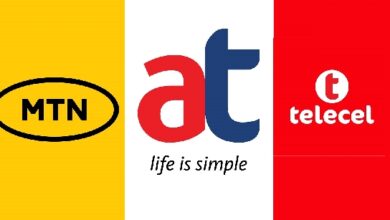Complete Overview Of The GES Continuous Professional Development (CPD) Programme And Schedule
As part of the GES’s effort to improve the pedagogical skills of teachers to effectively manage classrooms, teach literacy, numeracy and enhance instructional practices at the Basic Education level, (ESP 2018-2030, Objective BE 2.5) Continuous Professional Development (CPD) has been introduced and is expected to be owned and driven by teachers in our Basic Schools.
Continuous Professional Development (CPD) is an activity that is carried out to;
Promote the professional development of teachers
Regulate teachers to enhance their professional standards and competence by
building on the initial teacher training and induction programmes throughout their
career.
Ensure that teachers operate at the cutting edge of their profession and develop
competencies to progress their career.
Enhance the image of the teaching profession and accord it the valued status it
deserves in the Ghanaian society.
Upgrade teacher’s knowledge and skills through continuous training.
Continuous Professional Development (CPD) has been formally adopted into the academic
calendar and this is to allow teachers to upgrade themselves. The Management of GES
deem it fit to use its available resources to ensure that the needs of its personnel, generally
in the schools are identified and provided for.
In this regard the GES sees CPD as an ongoing requirement on individual teachers as is the
case with members of other professions. And that, in particular the requirement for teachers
to be engaged in CPD has to be viewed in the context of GES conditions of service.
The National Teachers’ Standards (NTS) set a clear baseline of expectations for the
professional knowledge, practice, conduct, attitude, right and obligations expected of
teachers at the pre-tertiary level.
The minimum levels of practice that a teacher is expected to meet is called Standards, which
is illustrated under the following three categories:
- Professional Values: According to the NTS Guidelines, teachers should be guided and
conversant with the legal and ethical teacher codes of conduct, condition of service and code
of service in their career development as professional teachers. - Professional practice:The teacher should employ a repertoire of learning strategies in
order to meet the learning needs of all children through the application of relevant resources. - Professional knowledge: The teacher should understand how children develop and learn
in diverse contexts (cultural, linguistic, socio-economic and educational backgrounds) and
apply this intheir teaching.
Table of Contents
ACTIVITIES FOR CPD
Professional Training Workshops
o This gives teachers the opportunity to be engaged in professional dialogue
where they learn and share best practices in effective teaching and learning
processes, which will lead to desired learning outcomes.
Mentorship/Coaching
o This is offering support, encouragement, information, guidance, generating
ideas, skills development, observation and modelling to enhance the suitability
and effectiveness of the teacher.
Collaborative activities
o This is also where teachers are engaged in cooperative learning process, make
use of creative adaptations and Think-Pair Share to arrive at a solution.
Action research (Conduct research and disseminate results)
o This session would be based on the problem at stake in a particular school
community.
Schedule for Continuous Professional Development (CPD) Days
Session One : Wednesday, 30th October, 2019
Session Two : Thursday, 20th February, 2020
Session Three : Thursday, 28th May, 2020
Session Four : 3rd August,2020
Guidelines for organizing CPD
Each district will constitute a CPD Committee made up of the following members: The
Director, Training Officer, Basic School coordinator, Rep. of Headteachers, Rep. of
SISO (CS), Rep. of DTST, Head of Human Resource, KG coordinator and French
Coordinator. They will see to the organization, provision and allocation of resources.
The organized CPD, scheduled to take place within the academic year shall basically
be focused on training workshops.
CPD workshops may be school-based, cluster-based or circuit-based.
Other activities such as mentoring, collaborative activities, action research could
specifically be school based where necessary.
There should be enough evidence to show that a Teacher has personally owned the
CPD and has built a portfolio on their carrier development.
Professional Development training will be organized four times in a year. Thus, once
each quarter.
The duration for a training workshop session for CPD should not exceed four (4) hours
a day, and must be broken down into 2 sessions of not more than 2 hours interspersed
with varying break periods.
Planned activities will be focused at ensuring that teachers are enabled to achieve the
teaching standards enshrined in the national teacher standards guidelines.
Teachers will be required to attend all training workshops within the year.
Headteachers should be responsible for ensuring that their teachers take part during
that day.
Teachers will be responsible for documenting and reflecting on the CPD activities they
undertake.
APPROACH TO CPD
- Review, reflect and analyze current requirement of the teacher and identify good
practices. - Identify CPD needs
- Assess individual needs
- Assess the school’s needs
- Plan CPD priority area.
- Survey expertise of staff as CPD facilitators
- Select appropriate facilitators
- Develop CPD plan
- Build each staff capacity to contribute to CPD
The CPD Cycle
Management of GES is working around the clock to update its appraisal system. This
activity principally is to harmonize the competencies of teachers to the CPD needs which
will have to be evaluated periodically to see its impact.
Planning Stage
At the beginning of the year, all staff members are expected to set their targets and
document them. Each staff member has to carry out a self-directed interview reviewing
their knowledge, skills, performance and professional qualities. This review will allow staff
to recognize their strengths and weaknesses/gaps and to identify their CPD needs. Target
will be set in consultation with the heads of schools.
Approval Stage
The documented set targets by the staff need to be prioritized and approved by the CPD
committee.
Implementation Stage
After agreement with the appraiser the staff member implements their CPD plan and
activities.
Evaluation Stage
Appraisers on the other hand will evaluate the progress of staff and acquired level of
competencies throughout the year. Then at the end of the year staffs meet to discuss
whether they have achieved the set target by comparing actual performance and the
planned performance of staff.
Key Actors in the implementation of CPD
1. District CPD Committee
2. District CPD Monitoring Team
3. SISO – School Improvement Support Officer (Circuit Supervisor)
4. DTO – District Training Officer
5. CL – Curriculum Lead
6. DTST – District Teachers Support Team
7. Teachers/ Head teachers
CPD actors and their roles
CPD committee:
Plan and organize CPD activities within the district.
Analyze on termly basis teacher’s CPD needs and prioritize them.
CPD Committee Members
District/Municipal/Metro Director
District Training Officer
Basic School coordinator
Rep. of Headteachers
Rep. of SISO (CS)
Rep. of DTST
Head of Human Resource
KG coordinator
French Coordinator
District Monitoring Team role:
They visit the schools to check whether the best practices shared at the CPD are being
implemented.
District Monitoring Team actors
District/Municipal/Metro Director
Head of Supervision and Monitoring
Head of Human Resource
District Training Officer
School Improvement Support Officer (Circuit Supervisor)
Will be responsible for liaising with Head Teachers to gather data on needs
assessment which will inform courses to be taught at CPD Training Workshops.
Head Teachers
Headteachers are expected to assist in assessing staff competencies and identify
CPD needs and give feedback to CPD Committee through the SISO.
Teachers
Should identify their personal CPD needs in the light of their personal carrier
development.
Own the process and put knowledge acquired into practice and provide records on
personal portfolio.
Teachers should participate actively in all capacity building trainings organized and
assess the quality of the training through evaluation.
Curriculum Leads
CL report to teachers on the activities of CPD and sensitize staffs on the CPD
programs.
The CL will support the Headteacher to collate teachers’ views on their challenges.
Ensure adequate preparations are made to create enabling environment before the
CPD activities.
District Training Officers
DTOs together with the CPD Committee should organize both human and material
resources for effective implementation of the CPD at the district level.
Regional Training Officers
They are to supervise and coordinate all training programs in their region and forward
compiled report from the District to the headquarters.
Expectations
We expect constructive feedback and recommendations from teachers to inform
subsequent sessions.
We expect that CPD would be teacher owned and teacher driven
We expect our staff to use CPD as opportunity for personal, professional and peer
development in an effort to improve learning outcomes of students
We expect CPD sessions to be very interactive and participatory.








